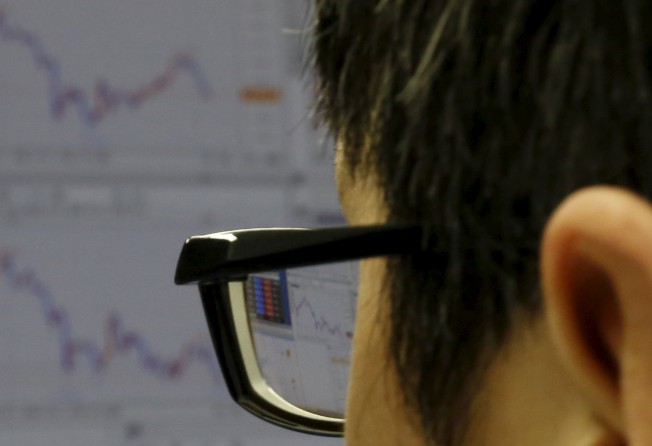Upcoming Brexit vote is a potential black swan and the last thing jittery markets need
British vote on whether to exit the European Union shows that political risk can disrupt

On Monday, sterling, Britain’s currency, suffered its sharpest daily fall in six years, dropping nearly 2 per cent against the dollar after Boris Johnson, the mayor of London and a high-profile figure in the ruling Conservative party, declared his support for the UK’s withdrawal from the European Union (EU) ahead of a high-stakes referendum on the country’s membership of the bloc on June 23.
The threat of a British exit from the EU (or Brexit), currently assigned a probability of more than a third according to JP Morgan, which warns sterling is “extremely vulnerable to capital flight” because of the UK’s reliance on foreign money to fund its large current account deficit, is injecting a large dose of political risk into financial markets, already buffeted by a plethora of concerns ranging from low oil prices to the conduct of US monetary policy.
Over the past several years, investors have brushed off political risk - the euro even strengthened versus the dollar in the spring of 2015 when it appeared that Greece was about to be ejected from the eurozone - as central banks’ ultra-loose monetary policies distorted asset prices, desensitising traders and asset managers to all sorts of country-specific risks.
Yet the possibility of a Brexit is likely to unnerve investors far more than was the case during the tense standoff between Greece and its creditors.
For starters, pressure on sterling is unlikely to abate in the run-up to the plebiscite and would increase dramatically if Britain, the world’s fifth largest economy (and second-largest in the EU) and whose capital is a global centre for finance and investment, voted to leave the EU.
On Wednesday, sterling dropped below the psychologically important $1.40 level for the first time since March 2009. Goldman Sachs believes a Brexit would cause the pound to drop a further 20 per cent, taking it to its lowest level against the greenback since 1985.
Secondly, and just as importantly, a Brexit could be the trigger for more severe political and financial tensions in the EU itself - stresses which surfaced during the eurozone crisis as investors belatedly recognised the heterogeneity of a bloc that had been wrongly treated as a homogenous entity.
While sterling is bearing the brunt of the Brexit sell-off, the euro has also fallen against the dollar. The cost of options protecting currency traders against losses in the euro is rising.
The EU-wide repercussions from a Brexit could be significant given London’s position as a global financial centre and the UK’s strong trade links with the bloc, with the EU accounting for seven of Britain’s nine biggest trading partners.
Thirdly, a Brexit is the last thing jittery markets need right now.
The debate on Britain’s membership of the EU is taking place at a time when there are persistent concerns about China’s economy, emerging markets are under strain, oil prices continue to fall and, most worryingly, investors are losing confidence in the policies of central banks.
According to the latest Global Fund Manager Survey, a regular survey of some of the world’s largest institutional investors carried out by Bank of America Merrill Lynch (BAML), the failure of central banks’ quantitative easing (QE) programmes is now perceived as the third most important “tail risk” for markets after debt defaults by energy companies and a US recession.
Investors are becoming more sensitive to political risk as the credibility and effectiveness of central banks’ policies wane.
Politics is now an important determinant of market sentiment.
The financial turmoil in China earlier this year which contributed to a dramatic sell-off in global equity markets is a symptom of broader concerns in the West about the Chinese Communist party’s willingness and ability to undertake the politically contentious liberalising reforms being demanded of it.
In the eurozone, meanwhile, the shift from a “bail-out” to a “bail-in” regime for the bloc’s vulnerable banks, in which private creditors (as opposed to taxpayers) are expected to foot the bill for financial rescues, has already led Portugal’s Socialist government to impose losses on foreign bondholders in order to shield individual investors. This has led one prominent foreign bondholder to compare Portugal’s government to the left-wing populist administration in Venezuela.
A Brexit may be the most conspicuous political risk right now. But political uncertainty elsewhere, to say nothing about mounting geo-political tensions, could become just as troubling for investors as the safety nets provided by central banks gradually disappear.
Nicholas Spiro is a partner at Lauressa Advisory